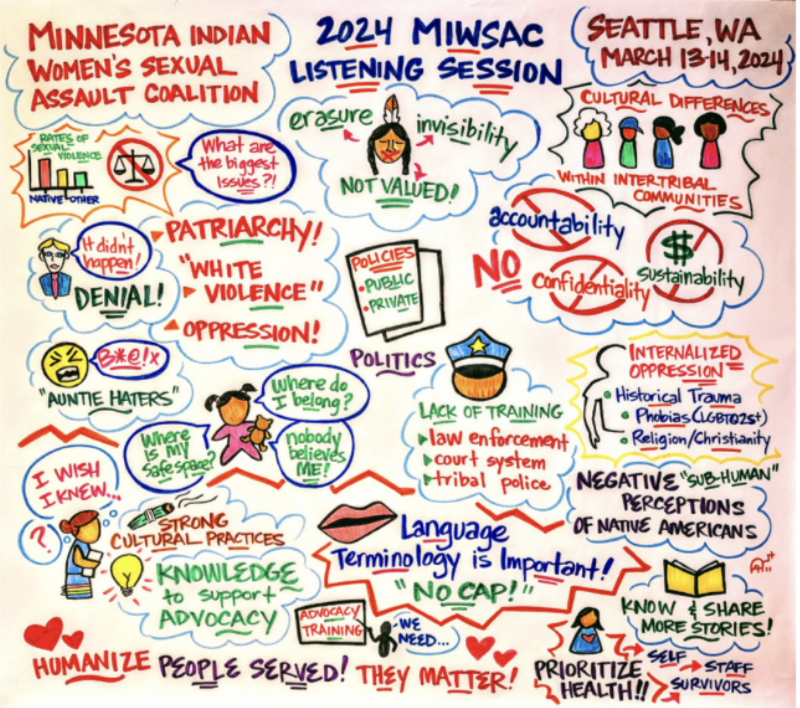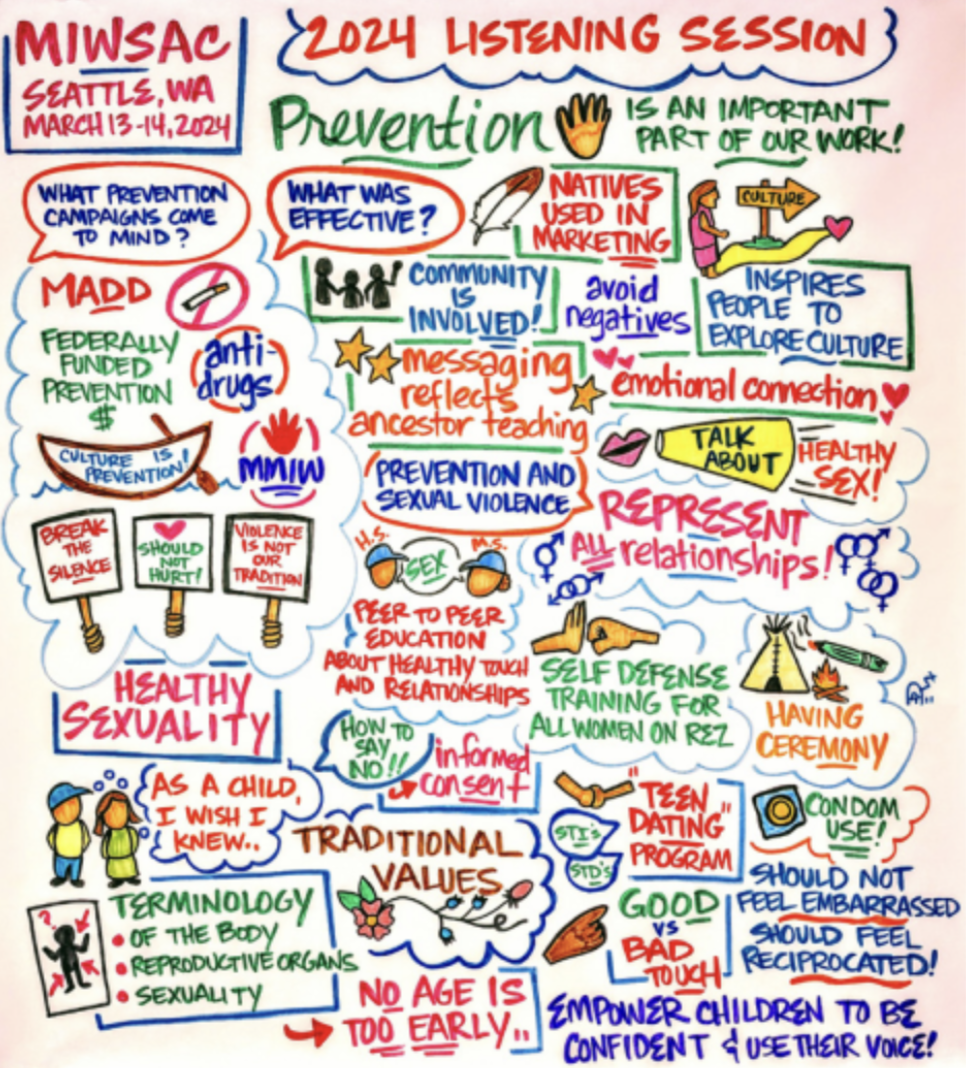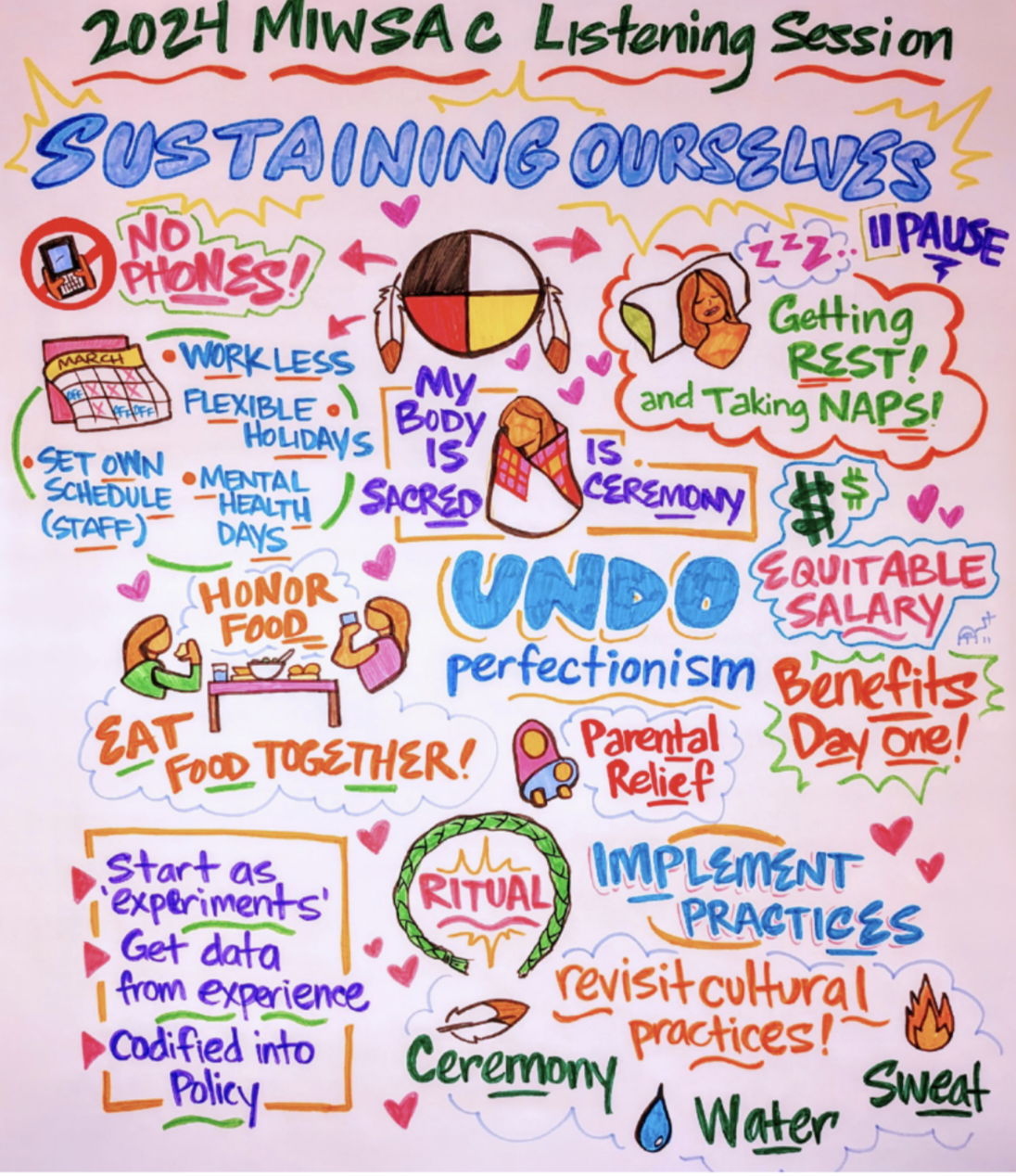Organizing and Decolonizing Our Work to End Sexual Violence: National Tribal Sexual Assault Resource Center Convenes a Listening Session for and by Advocates
The National Tribal Sexual Assault Resource Center was honored and excited to convene a listening session on March 13-14, 2024, for Advocates and community members engaged in the movement to end sexual violence. We were so encouraged by the positive response to our invitation to attend the listening session, and we continue to be in awe of the beautiful words and prayers that shaped our time together. Attendees represented various ages, experiences, professional roles, and Tribal representation. This diversity of perspective made for rich conversation and illuminated some powerful shared experiences. We are grateful for the work of Graphic Recorder Joseph Stacy for giving us a visual representation of some themes and ideas that resonated throughout our time together. We hope these images resonate with you and invite you to share your thoughts and experiences.

One of the priorities of the National Tribal Sexual Assault Resource Center is to invest in Advocates, Native organizational leadership, and our communities to address the pervasive issue of burnout in the work to end sexual violence against Native people. In the listening session, as we have heard in many other conversations, we heard about the continual loss of Advocates and community-based service providers in Tribal communities. The emotional and spiritual weight of working with victims and survivors of sexual violence can not be overstated, and only those who have been in those roles can understand the toll it takes on a person. We heard about the need to invest in Advocates through wages and benefits, continuing education, and engaging Advocates in meaningful conversation where their experiences shape the policies that impact their everyday work. Advocates have immense knowledge and valuable experience and we refuse to devalue our relatives by letting their words fall to the ground. The National Tribal Sexual Assault Resource Center is working to share the wisdom from our listening session in ways that support you and your organization in investing in the longevity of your social change and systems advocacy and service provision. We envision a world free from sexual violence and steeped in respect.
We need strong-hearted, well-resourced, highly skilled leaders, Advocates, and allies to carry us toward that vision. Leadership and Advocates who are survivors are vital to guiding and directing the removal of systemic barriers and the implementation of solutions. We acknowledge that we do not equate skilled solely with formal education, credentialing, or any tool of the colonizer. Instead, we acknowledge that skill-building comes from being in community, serving our relatives, and learning from each other. We heard many experiences of our relatives being shamed, silenced, and blamed while advocating for victims and survivors of sexual violence. We know that shame is a tool of the colonizer to create distance between us as relatives and between our spirits. A beautiful conversation unfolded in which we discussed culturally appropriate tools for taking accountability, and we were advised to remember, “If we can’t talk about it, we can’t address it.” The National Tribal Sexual Assault Resource Center wants to talk about these challenging experiences and narratives that so many Advocates and relatives confront every day. We want to support your work to address sexual violence in your community, your family, and across Turtle Island. Our commitment to you is to continue the conversation as we work together to decolonize our work to end sexual violence. The National Tribal Sexual Assault Resource Center continues to host regular webinars and Facebook Lives, and we welcome your requests for training and technical assistance at https://www.miwsac.org/contact-us/request-training.
The production of this material was made possible by HHS-2022-ACF-ACYF-VE-0165 from the Department of Health and Human Services, Administration for Children and Families. Its contents are solely the responsibility of the Minnesota Indian Women’s Sexual Assault Coalition and do not necessarily represent the official views of the Department of Health and Human Services, Administration for Children and Families.






